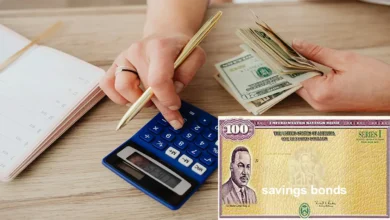How to Buy Used Phones to Save Money (Without Getting Scammed)

In today’s fast-paced digital world, smartphones have become an indispensable part of our daily lives. However, the rapid advancement in technology has led to a steep rise in smartphone prices, leaving many consumers feeling the pinch. The secondhand smartphone market presents a viable solution for those looking to save money while still acquiring a quality device. Yet, the fear of getting scammed or purchasing a defective phone can deter potential buyers. In this guide, we will explore how to navigate the used phone market effectively—allowing you to save money without compromising on quality.
Understanding the Smartphone Market
Before diving into the world of secondhand phones, it’s important to grasp why smartphones have become so expensive. Manufacturers constantly release new models packed with innovative features, which drives prices up. This trend often leaves previous models with significant capabilities at lower price points. By purchasing a used phone, you’re not only saving money but also getting access to high-quality technology that meets your needs without breaking the bank.
Where to Shop for Used Phones
purchasing a new phone can often be a significant financial investment. For many, buying a used phone presents a more affordable alternative without sacrificing quality. But where you buy your used phone matters just as much as the device itself. To ensure peace of mind with your purchase, it’s important to choose reputable platforms and retailers that offer warranties, return policies, and quality guarantees. Here are some of the best places to buy used phones and what makes them stand out.
Peer-to-Peer Marketplaces
Swappa
Swappa is a standout option in the realm of peer-to-peer marketplaces. This platform is dedicated to ensuring that every transaction is safe and secure. Each listing undergoes a thorough review by moderators, and sellers are required to provide the phone’s IMEI number. This verification process helps eliminate blacklisted or stolen devices from the marketplace, giving buyers peace of mind. Additionally, prices on Swappa are often lower than those found on traditional retailer sites, and the ability to negotiate directly with sellers adds flexibility to your purchase.
Certified Pre-Owned Retailers
Gazelle
When it comes to certified pre-owned phones, Gazelle is a well-known name that offers reliability through its rigorous inspection process. Each device undergoes a comprehensive 30-point inspection before being listed for sale. Buyers can also take advantage of a 30-day return policy, allowing ample time to test the device and ensure it meets expectations.
Decluttr
For those seeking value—particularly for older models—Decluttr provides an appealing option. This platform includes a 12-month limited warranty on its devices, ensuring that buyers are protected against any potential issues after their purchase. With free shipping included in every transaction, Decluttr minimizes risk while maximizing convenience for consumers.
Back Market
Think of Back Market as the Amazon for refurbished electronics. This platform categorizes each phone with a grade ranging from “Excellent” to “Fair,” allowing buyers to make informed decisions based on their needs and budget. A standard one-year warranty across all devices further enhances buyer confidence.
Amazon Renewed
Amazon Renewed is another reliable option for purchasing refurbished phones. Devices sold through this program have been inspected and tested by approved vendors to meet Amazon’s quality standards. With the backing of Amazon’s customer service and robust return policies, buyers can feel secure in their purchases.
Apple Certified Refurbished
For those specifically interested in iPhones, Apple Certified Refurbished stands out as arguably the best option. These devices are restored to like-new condition, come with new batteries, and are supported by a one-year Apple warranty. This ensures not only high quality but also excellent customer support should any issues arise.
Retailers and Carriers
Best Buy
Best Buy frequently has deals on open-box or refurbished phones that can yield significant savings. Whether you’re looking for carrier-locked or unlocked models, Best Buy offers an in-store return policy that adds an extra layer of security for your purchase.
Caution with Local Listings
While local listings such as Craigslist or Facebook Marketplace may offer tempting deals, they come with inherent risks. If you choose this route, it’s crucial to proceed with caution: always insist on meeting in public spaces that are well-lit and monitored by cameras. Additionally, checking the IMEI number before finalizing any transaction can help protect against fraud.
What to Check Before You Buy a Used Phone
To ensure you make a wise investment, it is crucial to approach the purchase of a used phone with caution and thoroughness. We’ll outline a comprehensive checklist of key aspects to evaluate before making your commitment.
1. IMEI Status
One of the first things you should check when considering a used phone is its IMEI (International Mobile Equipment Identity) or ESN (Electronic Serial Number). This unique identifier can reveal whether the device is blacklisted or reported stolen. You can verify the IMEI status on websites like Swappa or directly through your carrier’s site—such as Verizon or T-Mobile. Ensuring that the phone has a clean record will help you avoid potential legal issues down the road.
2. Carrier Compatibility
Next, you’ll want to assess carrier compatibility. Not all phones are compatible with every network; some may be locked to specific carriers, which could complicate your ability to use the device with your preferred provider. Look for listings labeled as “unlocked” or “universal” to guarantee that you won’t face any hurdles in connecting the phone to your network of choice.
3. Battery Health
A phone is only as good as its battery life, so checking battery health is vital before purchasing a used device. For iPhone users, this information can be found under Settings > Battery > Battery Health; ideally, you want a battery capacity of 85% or higher. For Android devices, apps like AccuBattery can provide similar insights into battery performance. A healthy battery will not only enhance your user experience but also save you from unexpected replacements shortly after your purchase.
4. Screen and Body Condition
The physical condition of the phone should also be scrutinized closely. Inspect it for scratches, chips, and cracks—especially around corners and edges where damage from drops often goes unnoticed. A thorough visual examination will help you gauge how well the previous owner took care of their device and can prevent future surprises related to cosmetic damage.
5. Camera Functionality
In an age where capturing moments is paramount, ensuring that all camera functions work properly is essential. Open the camera app and test each lens for clarity and functionality; look out for dead pixels, blurry images, or any visible lens dust that could hinder performance.
6. Audio & Ports
Audio quality can significantly affect your overall experience with a smartphone, so take time to play music or videos through the device’s speaker during your inspection. Additionally, plug in both a charger and headphones to verify that all ports are functioning correctly—this includes charging ports and audio jacks.
7. Connectivity
Finally, check that all connectivity features work seamlessly. Turn on Wi-Fi, Bluetooth, and GPS capabilities to confirm they function without issue. A smartphone that struggles with connectivity can be frustrating and limit its usability in everyday situations.
8. Reset Status
Before finalizing your purchase, ensure that the phone has been factory reset and that all previous data has been wiped clean from the device. For iPhones specifically, verify that Activation Lock is disabled so you won’t face any hurdles when trying to set up the phone under your account.
How to Avoid Scams
While buying used phones can be cost-effective, it’s essential to remain vigilant against potential scams. Here are some tips to help you avoid pitfalls:
- Research Prices: Familiarize yourself with the market value of specific models before making an offer or purchase. This knowledge will help you spot overpriced listings.
- Request Detailed Information: When buying from individuals, ask for specifics about the phone’s condition, battery life, and any previous repairs made.
- Check IMEI Numbers: Always ask for the IMEI number and check it against databases like Swappa’s IMEI checker or your carrier’s system to ensure the phone isn’t stolen or blacklisted.
- Meet in Person: If buying locally, arrange a safe meeting place where you can inspect the phone thoroughly before handing over any money.
- Trust Your Instincts: If something feels off about a seller or listing—whether it’s vague descriptions or pressure tactics—don’t hesitate to walk away.
Spotting a Great Deal
Identifying a good deal requires keen observation and negotiation skills:
- Inspect Thoroughly: Check for physical damage such as cracks or scratches on the screen and body. Test all functions including buttons, cameras, and charging ports.
- Battery Health: Inquire about battery health; older devices may require battery replacement sooner than expected.
- Look for Accessories: A good deal may include original accessories such as chargers or cases that can add value to your purchase.
- Negotiate Wisely: Don’t be afraid to negotiate price based on your findings during inspection; sellers often expect some bargaining.
- Be Patient: Sometimes waiting for price drops during sales events can lead you to even better deals on used phones.
Is Buying Used Phones Worth It?
Technology continues to evolve at an astonishing rate, particularly in the realm of smartphones. With each new model release comes a barrage of features that often seem marginally improved from their predecessors. This constant cycle raises an important question for consumers: is buying a used phone worth it? The short answer is yes, absolutely. we will explore the financial benefits, performance capabilities, and environmental impact of purchasing used phones.
Financial Savings
One of the most compelling reasons to consider a used phone is the significant cost savings. When you buy a used device, you’re often acquiring 80% to 90% of the performance of the latest model at a fraction of the price. For instance, you can find a used iPhone 13 Pro Max with 128GB for around $500–$600, while the latest iPhone 15 Pro Max starts at $1,199. This translates to potential savings of over $600 for a device that meets nearly all your needs just as effectively.
These savings extend beyond the initial purchase price. Many used phones come with existing warranties or are certified refurbished models that assure quality. Additionally, when you opt for a less expensive phone model, you may also save on accessories and services—think lower insurance premiums or even reduced repair costs due to less expensive parts.
Performance Capabilities
A common misconception about buying used phones is that they are outdated or inferior in terms of performance. However, many used devices still deliver impressive specifications and capabilities. For example, models released just a year or two ago often feature excellent cameras, robust processors, and ample storage space—capabilities that may suit your daily needs perfectly.
Moreover, software updates continue to support these devices for several years after their release. Apple and Google are known for maintaining software support for older models longer than many consumers realize. This means that even if you’re using an older phone model, you’ll still receive regular security updates and new features well into its lifespan.
Environmental Impact
Beyond financial considerations, buying used phones presents substantial environmental benefits. The electronics industry has a significant carbon footprint; however, opting for refurbished or second-hand devices can reduce this impact dramatically—by as much as 11 times in some studies. Extending the life of a smartphone diminishes the demand for new manufacturing processes, which cuts down on electronic waste and conserves precious resources required to mine rare earth metals.
For eco-conscious consumers who are increasingly mindful of their purchasing decisions’ environmental implications, buying used phones becomes not just an economical choice but also an ethical one.
Conclusion
Buying a used phone is not just an economical choice; it’s also an environmentally friendly one as it extends the lifespan of electronic devices that might otherwise contribute to waste. By understanding how smartphones are priced, knowing where to shop, avoiding scams, and spotting great deals, you can successfully navigate this market without falling victim to common pitfalls.
Ready to make your next smartphone purchase? Start exploring reputable marketplaces today and remember—smart shopping leads not just to savings but also satisfaction. Best regards, Finance Mate Club





